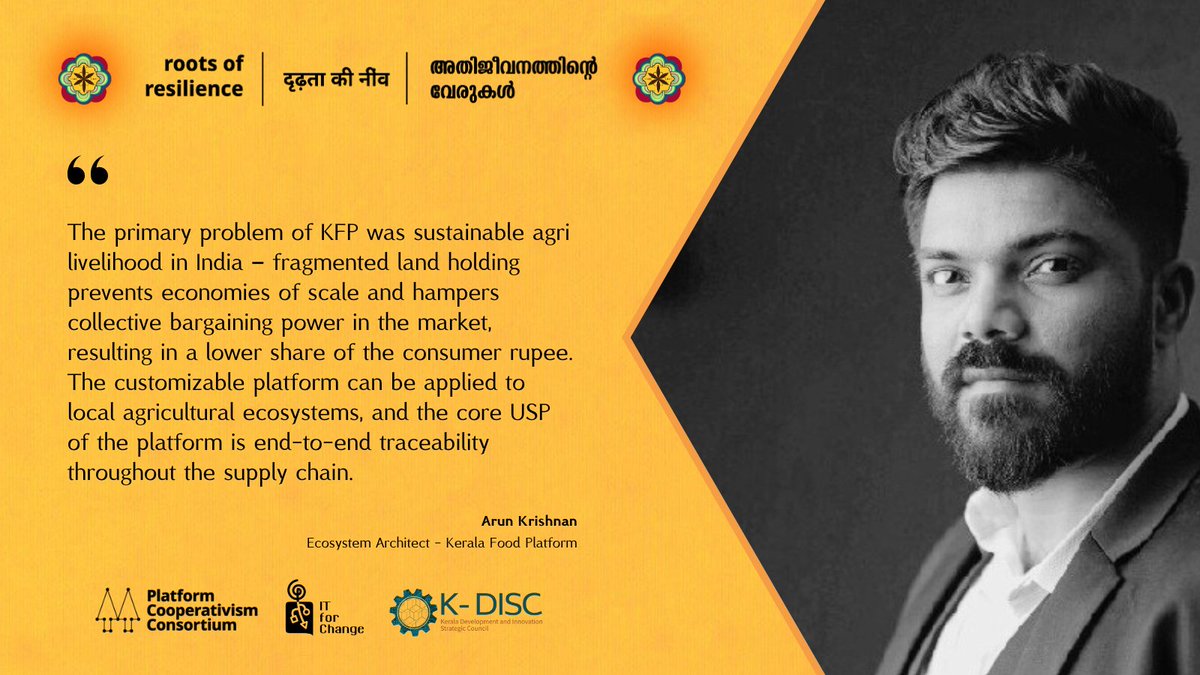The Kerala Food Platform

Arun Krishnan ‘stalk on the Kerala Food Platform at the Roots of Resilience conference
“The Kerala Food Platform aims to address the issue of sustainable agricultural livelihoods in Kerala. As discussed, the problem of fragmented land holdings prevents economies of scale, hindering farmers from having effective collective bargaining power in the market, which results in them receiving a lower share of the consumer’s rupee.
Additionally, there’s an oversupply of produce from other states and concerns about the safety of food due to high levels of pesticide and insecticide residues found in the incoming produce. This larger context led to the initiation of the Kerala Food Platform project. We understood that many decentralized local agricultural ecosystems support farmers across the state. An example is the Palayakal Service Bank in Cochin, supporting nearly 400 farming families over the past 25 years with entirely organic, locally grown produce, including pokkoli rice, fruits, vegetables, medicinal plants, flowers like jasmine, dairy, eggs, and fish.
The bank has developed a robust system of self-help groups (SHGs), each focusing on specific product lines, such as rice or fruits and vegetables. These SHGs hold regular, minuted meetings and provide comprehensive support to farmers, from subsidized inputs and technical support to procuring produce at above-market rates. Additionally, the bank offers social security benefits, like bonuses for festivals such as Onam. However, supporting these communities has not been sustainable financially for the bank. Hence, the Kerala Food Platform was introduced as a digital aggregation platform equipped with tools and services for traceability and market connectivity. This platform allows the cooperative to onboard farmers efficiently and market their products under the brand Palyakel, promoting them as safe and traceable.
The Kerala Food Platform serves as a customizable public digital infrastructure that can be adapted by local agricultural ecosystems, including cooperatives and farmer producer organizations. It offers end-to-end traceability and supports data transparency throughout the supply chain, ensuring compliance with certification processes like PGS India. Discussing the specifics, Palayakal Bank, located in Erikarai near Cherai Beach in Cochin, is particularly known for cultivating Pokali rice, a special variety that has received a GI tag and is considered a sustainable option for areas affected by seawater intrusion due to its resilience to salty conditions.”
The bank focuses on value-added products from Pokali rice and has implemented an ecosystem management tool that includes a mobile app and front-end platform for customers, enhancing traceability and customer engagement. This pilot has shown potential, but scaling up to include more cooperatives and farmers is essential for creating a viable business model.”